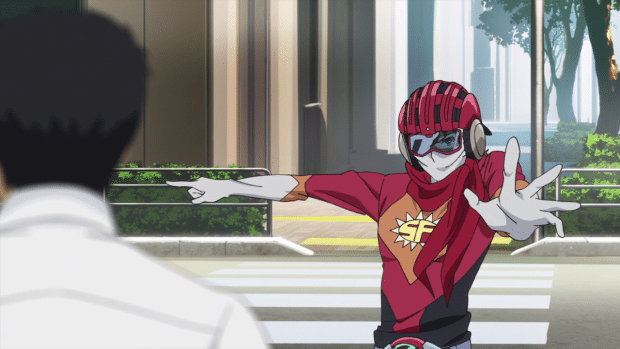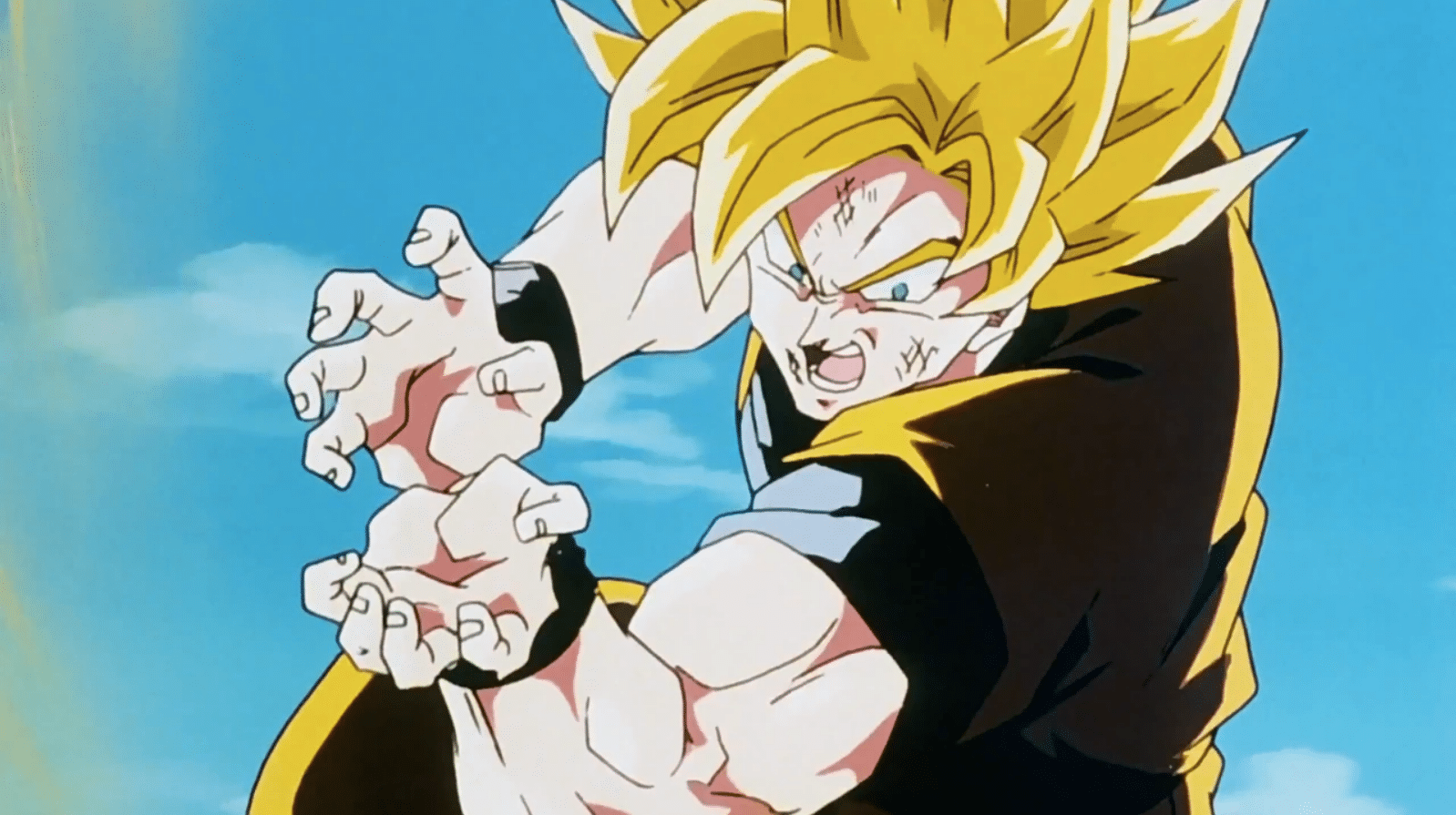[ad_1]

The language studying group is divisive on whether or not you’ll be able to study Japanese from anime.
On one hand, it’s an extremely enjoyable and versatile medium, with tons of choices for everybody.
However, anime makes use of many stylized types of dialog, so that you threat not studying “actual” Japanese such as you’d hear on the streets.
No matter you concentrate on this difficulty, there’s little question that anime has some very enjoyable turns of speech. In case you’re a fan, you most likely already know some!
Whether or not you’re trying to study Japanese by anime, otherwise you need to have the ability to watch Japanese anime with out subtitles, this publish has you coated.
Uncover the coolest catchphrases, learn to inform your deres aside and immerse your self in widespread Japanese anime phrases and phrases… over 250 of them!
Contents
Obtain:
This weblog publish is on the market as a handy and moveable PDF that you just
can take wherever.
Click on right here to get a replica. (Obtain)
Anime Style Names
From a space-adventuring superhero fighter to the healthful relationship between a boy and the tiny woman who’s changed his hand, there’s an anime on the market for you. Whether or not you want romance, journey, horror or one thing else fully, listed here are among the most typical Japanese anime genres, and tips on how to say them in Japanese:
Honorifics and Titles
Reader-chan, when you watch anime, you’ll quickly develop into very well-versed in honorifics and particular titles of standing. Listed below are among the most typical ones you’ll hear:
| Japanese (with audio) | Furigana | Romaji | English Translation |
|---|---|---|---|
| ちゃん | ちゃん | Chan | Used for ladies / Youthful feminine |
| へいし | へいし | Heisha | Soldier / Navy personnel |
| こうはい | こうはい | Kouhai | Junior (referring to somebody youthful or much less skilled) |
| くん | くん | Kun | Used for boys / Youthful male |
| 牧師 | ぼくし | Kyoukai | Reverend / Minister |
| 様 | さま | Sama | Honorable (used to indicate respect to somebody of upper standing) |
| さん | さん | San | Mr. / Mrs. / Ms. |
| 先輩 | せんぱい | Senpai | Senior (referring to somebody older or extra skilled) |
| 師匠 | ししょう | Shishou | Grasp / Mentor |
| たん | たん | Tan | Affectionate suffix (used for cute characters or by shut buddies) |
| 店長 | てんちょう | Tenchou | Retailer Supervisor / Shopkeeper |
Pronoun Use in Anime
Japanese pronouns have some distinctive qualities that set them other than English. The way in which you check with your self and others can have layers of complexities that you just won’t count on. Listed below are essential ones to notice:
| Japanese (with audio) | Furigana | Romaji | English Translation |
|---|---|---|---|
| あなた | あなた | Anata | Generally used for “you” when addressing somebody of equal or decrease standing, or for somebody you do not know effectively. |
| お前 | おまえ | Omae | Casual and might be impolite, used when addressing somebody of equal or decrease standing, typically used between buddies or rivals. |
| あんた | あんた | Anta | Informal and acquainted type of “you”, used between shut buddies or folks with a powerful bond. |
| おたく | おたく | Otaku | Referring to another person as an “otaku” might be playful or teasing, nevertheless it may also be rude or offensive relying on the context. |
| 僕 | ぼく | Boku | Utilized by boys and younger males, humble and well mannered technique to say “I”. |
| 俺 | おれ | Ore | Utilized by boys and males, extra assertive and fewer formal technique to say “I”. |
| 私 | わたし | Watashi | Impartial and well mannered technique to say “I”, utilized by each men and women, applicable in formal or informal conditions. |
| アタシ | あたし | Atashi | Female technique to say “I,” largely utilized by females and female males. |
| 私 | わたくし | Watakushi | A proper and haughty technique to say “I,” implying a sure degree of distance or superiority. |
| 姉 | あね | Ane | Older sister” pronoun, utilized by ladies and younger ladies when referring to their very own older sisters. |
| 兄 | あに | Ani | Older brother” pronoun, utilized by boys and younger males when referring to their very own older brothers. |
| 妹 | いもうと | Imouto | Youthful sister” pronoun, utilized by boys and younger males when referring to their very own youthful sisters. |
| 弟 | おとうと | Otouto | Youthful brother” pronoun, utilized by ladies and younger ladies when referring to their very own youthful brothers. |
| 彼 | かれ | Kare | He” or “boyfriend” pronoun, used to check with somebody’s boyfriend or a male third-person pronoun. |
| 彼女 | かのじょ | Kanojo | She” or “girlfriend” pronoun, used to check with somebody’s girlfriend or a feminine third-person pronoun. |
| 彼ら | かれら | Karera | They” pronoun, used to check with a bunch of males or a mixed-gender group. |
| 彼女たち | かのじょたち | Kanojo-tachi | They” pronoun, used to check with a bunch of females. |
| みんな | みんな | Minna | Everybody” or “you all” pronoun, used to handle a bunch of individuals in an off-the-cuff and pleasant approach. |
| 皆さん | みなさん | Minasan | Everybody” or “women and gents” pronoun, used to handle a bunch of individuals in a well mannered and respectful approach. |
Character Kind Phrases
A dere is a personality archetype, describing a personality that reveals contrasting feelings or habits. So what’s a tsundere? Discover out beneath, together with various different character varieties it could be clever to know earlier than you fall head-over-heels with that sweet-seeming yandere.
| Japanese (with audio) | Furigana | Romaji | English Translation |
|---|---|---|---|
| クーデレ | くーでれ | Kuudere | Character who’s at first cool and unapproachable, however later as he will get to know you effectively sufficient, turns into lovey-dovey |
| デレデレ | でれでれ | Deredere | Character who is continually lovey-dovey and affectionate |
| ダンデレ | だんでれ | Dandere | Character who’s dandy and reserved however lovey-dovey to solely sure folks reserved |
| オタク | おたく | Otaku | Obsessive fan/geek |
| バカ | ばか | Baka | Idiot |
| 美少女 | びしょうじょ | Bishoujo | Stunning younger woman |
| 美少年 | びしょうねん | Bishounen | Stunning younger boy |
| キャラクター | きゃらくたー | Kyarakutaa | Character |
| ヒロイン | ひろいん | Hiroin | Heroine |
| ヒーロー | ひーろー | Hiirou | Hero |
| 悪役 | あくやく | Akuyaku | Villain |
| 腐女子 | ふじょし | Fujoshi | Feminine fan of boys’ love |
| 腐男子 | ふだんし | Fudanshi | Male fan of boys’ love |
| シリアス | しりあす | Shiriasu | Critical (character or tone) |
| コメディ | こめでぃ | Komedii | Comedy (style or character sort) |
| ロリ | ろり | Rori | Lolita (young-looking character) |
| ショタ | しょた | Shota | Shota (young-looking boy character) |
| バトル | ばとる | Batoru | Battle (style or character sort) |
| 学生 | がくせい | Gakusei | Pupil |
| 先輩 | せんぱい | Senpai | Senior (referring to somebody older or extra skilled) |
| 後輩 | こうはい | Kouhai | Junior (referring to somebody youthful or much less skilled) |
| オネエ | おねえ | Onee | Effeminate male character |
| お嬢様 | おじょうさま | Ojousama | Wealthy, refined younger girl |
| ツッコミ | つっこみ | Tsukkomi | Straight man in a comedy duo |
| ボケ | ぼけ | Boke | Humorous man in a comedy duo |
Widespread Anime Phrases and Phrases
These are phrases and phrases you’ll virtually positively hear whereas watching anime!
| Japanese (with audio) | Furigana | Romaji | English Translation |
|---|---|---|---|
| 仇 | あだ | Ada | Enemy / Rival |
| 愛 | あい | Ai | Love |
| 愛してる | あいしてる | Aishiteru | I really like you |
| あなたを信じてる | あなたをしんじてる | Anata o shinjiteru | I imagine in you |
| アラアラ | あらあら | Ara ara | (Female expression of delicate scolding or shock) |
| あれ? | あれ? | Are? | Huh? |
| ありがとう | ありがとう | Arigatou | Thanks |
| ありがとう、助かった | ありがとう、たすかった | Arigatou, tasukatta | Thanks, you saved me |
| びっくり | びっくり | Bikkuri | Shock |
| 力 | ちから | Chikara | Energy / Energy |
| 力を解放する | ちからをかいほうする | Chikara o kaihou suru | Releasing my energy |
| 大丈夫 | だいじょうぶ | Daijoubu | It is okay |
| 大好き | だいすき | Daisuki | I prefer it very a lot |
| だからさ | だからさ | Dakara sa | That is why |
| だめだめ | だめだめ | Dame dame | No approach |
| どういたしまして | どういたしまして | Dou itashimashite | You are welcome |
| どういう意味? | どういういみ? | Dou iu imi? | What does that imply? |
| どうしたの? | どうしたの? | Doushita no? | What’s incorrect? |
| どうぞ | どうぞ | Douzo | Right here you go/Please |
| どうぞお大事に | どうぞおだいじに | Douzo odaiji ni | Maintain your self |
| えっ | えっ | E | Huh |
| ええと、実は… | ええと、じつは… | Eeto, jitsu wa | Um, truly… |
| 二人で頑張ろう | ふたりでがんばろう | Futari de ganbarou | Let’s do our greatest collectively |
| がんばれ | がんばれ | Ganbare | Cling in there/Do your greatest |
| 頑張って | がんばって | Ganbatte | Do your greatest |
| ごちそうさま | ごちそうさま | Gochisousama | Thanks for the meal |
| ごめんなさい | ごめんなさい | Gomen nasai | I am sorry |
| はい | はい | Hai | Sure |
| はい、分かりました | はい、わかりました | Hai, wakarimashita | Sure, I perceive |
| 本当に? | ほんとうに? | Hontou ni? | Actually? |
| いいえ | いいえ | Iie | No |
| いいえ、何でもありません | いいえ、なんでもありません | Iie, nandemo arimasen | No, it is nothing |
| いただきます | いただきます | Itadakimasu | Let’s eat (earlier than a meal) |
| 行ってきます | いってきます | Ittekimasu | I am off/Goodbye (when leaving) |
| 行ってらっしゃい | いってらっしゃい | Itterasshai | Take care (when somebody leaves) |
| かっこいい | かっこいい | Kakkoii | Cool |
| 乾杯 | かんぱい | Kanpai | Cheers |
| 勝った | かった | Katta | I gained |
| かわいい | かわいい | Kawaii | Cute |
| かわいいですね | かわいいですね | Kawaii desu ne | It is cute, is not it? |
| 気をつけて | きをつけて | Ki o tsukete | Keep effectively |
| 希望 | きぼう | Kibou | Hope |
| 希望を捨てない | きぼうをすてない | Kibou o sutena | I will not surrender hope |
| 嫌い | きらい | Kirai | Hate |
| 綺麗 | きれい | Kirei | Stunning |
| きっと大丈夫 | きっとだいじょうぶ | Kitto daijoubu | It’s going to be alright |
| こんにちは | こんにちは | Konnichiwa | Hiya/Good afternoon |
| これでおしまい | これでおしまい | Kore de oshimai | That is the tip |
| これからよろしく | これからよろしく | Kore kara yoroshiku | I am relying on you any more |
| きゃー! | きゃー! | Kyaa! | Eek! (Squeal) |
| まあまあ | まあまあ | Maa maa | It is okay |
| 負けた | まけた | Maketa | I misplaced |
| また会いましょう | またあいましょう | Mata aimashou | Let’s meet once more |
| また明日 | またあした | Mata ashita | See you tomorrow |
| もう我慢できない | もうがまんできない | Mou gaman dekinai | I am unable to take it anymore |
| 仲間 | なかま | Nakama | Shut pal |
| 何ですか? | なんですか? | Nan desu ka? | What’s it? |
| 何だろう | なんだろう | Nandarou | I ponder what it’s |
| 何で? | なんで? | Nande? | Why? |
| 何でもないよ | なんでもないよ | Nandemo nai yo | It is nothing |
| 何これ? | なにこれ? | Nani kore? | What’s this? |
| なるほど | なるほど | Naruhodo | I see |
| おばあちゃん | おばあちゃん | Obaachan | Grandma |
| おばあさん | おばあさん | Obaasan | Grandmother |
| お坊っちゃま | おぼっちゃま | Obocchama | Younger grasp |
| お大事に | おだいじに | Odaiji ni | Get effectively quickly |
| お元気で | おげんきで | Ogenki de | Take care |
| おはよう | おはよう | Ohayou | Good morning |
| お姫様 | おひめさま | Ohimesama | Princess |
| お祝い | おいわい | Oiwai | Celebration |
| お邪魔します | おじゃまします | Ojama shimasu | Excuse me for disturbing |
| おじいちゃん | おじいちゃん | Ojiichan | Grandpa |
| おじいさん | おじいさん | Ojiisan | Grandfather |
| お嬢様 | おじょうさま | Ojousama | Younger girl/Miss |
| おかえりなさい | おかえりなさい | Okaerinasai | Welcome again |
| おめでとう | おめでとう | Omedetou | Congratulations |
| おもしろい | おもしろい | Omoshiroi | Humorous/Fascinating |
| お姉ちゃん | おねえちゃん | Oneechan | (Acquainted) Older sister |
| お姉さん | おねえさん | Oneesan | (Respectful) Older sister |
| お願い | おねがい | Onegai | Please |
| お願いだから | おねがいだから | Onegai dakara | Please, I am begging you |
| お願いします | おねがいします | Onegaishimasu | Please/Do me a favor |
| お兄ちゃん | おにいちゃん | Oniichan | (Acquainted) Older brother |
| お兄さん | おにいさん | Oniisan | (Respectful) Older brother |
| お誕生日おめでとう | おたんじょうびおめでとう | Otanjoubi omedetou | Blissful birthday |
| お楽しみ | おたのしみ | Otanoshimi | Wanting ahead to it |
| お手伝いいたしましょう | おてつだいいたしましょう | Otetsudai itashimashou | Let me enable you to |
| お疲れ様 | おつかれさま | Otsukaresama | Thanks on your arduous work |
| おっと | おっと | Otto | Oops |
| おやすみ | おやすみ | Oyasumi | Good evening |
| さようなら | さようなら | Sayounara | Goodbye |
| 戦士 | せんし | Senshi | Warrior |
| 戦友 | せんゆう | Senyuu | Battle companion |
| 勝利 | しょうり | Shouri | Victory |
| それは違う | それはちがう | Sore wa chigau | That is not proper |
| それじゃあ、行ってきます | それじゃあ、いってきます | Sorejaa, itte kimasu | Effectively then, I am off (when leaving) |
| すごい | すごい | Sugoi | Superb |
| すごくかっこいい | すごくかっこいい | Sugoku kakkoii | Actually cool |
| すごく楽しかった | すごくたのしかった | Sugoku tanoshikatta | It was actually enjoyable |
| すみません | すみません | Sumimasen | Excuse me |
| ただいま | ただいま | Tadaima | I am again |
| 戦い | たたかい | Tatakai | Battle |
| 敵 | てき | Teki | Enemy |
| 友達 | ともだち | Tomodachi | Pal |
| 友達を守る | ともだちをまもる | Tomodachi o mamoru | Defending my buddies |
| とっても嬉しい | とってもうれしい | Tottemo ureshii | I am very comfortable |
| 闘志 | とうし | Toushi | Preventing spirit |
| うん、分かった | うん、わかった | Un, wakatta | Sure, understood |
| うるさい | うるさい | Urusai | Annoying |
| うるさいですね | うるさいですね | Urusai desu ne | It is annoying, is not it? |
| 嘘でしょ | うそでしょ | Uso desho | You should be kidding |
| うわー! | うわー! | Uwaa! | Wow! |
| わあ、すごい! | わあ、すごい! | Waa, sugoi! |
Wow, wonderful! |
| わーい、楽しい! | わーい、たのしい! | Waai, tanoshii! | Yay, it is enjoyable! |
| わーい! | わーい! | Waai! | Hooray! |
| 分かりません | わかりません | Wakarimasen | I do not perceive |
| 分かります | わかります | Wakarimasu | I perceive |
| 分かった | わかった | Wakatta | I received it |
| やったー! | やったー! | Yattaa! | Hooray! |
| よかった | よかった | Yokatta | I am glad |
| よくやった | よくやった | Yoku yatta | Effectively achieved |
| よろしくお願いします | よろしくおねがいします | Yoroshiku onegaishimasu | Good to fulfill you |
| 夢 | ゆめ | Yume | Dream |
| 勇気 | ゆうき | Yuuki | Braveness |
| 勇者 | ゆうしゃ | Yuusha | Hero |
Well-known Anime Catchphrases
Who mentioned that line? These typically meme-d anime catchphrases pop up on the web fairly typically. You is likely to be accustomed to them even when you’ve by no means watched an anime!
Anime Battle Cries
Get into the preventing spirit as you study these anime battle cries. Rah!
Whether or not you’re a seasoned otaku or simply beginning your anime journey, these anime phrases and phrases will unlock a deeper understanding of the enjoyable and typically insane world of anime Japanese.
[ad_2]


